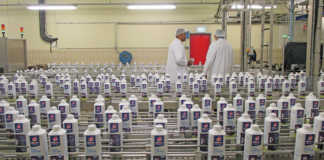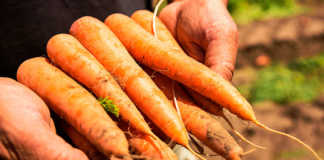Farm worker strikes in De Doorns in the Western Cape continued into the third week of November despite evidence that
workers in this area are among the best paid farm employees in the country. Meanwhile, farmer representative body Agri
Wes-Cape has received a list of demands from groups claiming to represent the workers – although it’s still unclear who’s really behind the strikes.
Agri Wes-Cape said in a statement it believed the protest action had been instigated by “a group of unruly vigilantes, who took to the streets, blocking off part of the N1 that runs through the Hex River Valley, burning tyres, looting businesses and setting some vineyards alight.” Agri Wes-Cape CEO Carl Opperman said farmers and farm workers were “threatened and
intimidated”, and some of the latter were forced to join the unrest.
Several groups are claiming to speak on behalf of the striking workers, said Opperman. These include the Black
Association of the Wine and Spirit Industry (Bawsi), Cosatu, as well as the Woman on Farms Project and People Against Suffering Oppression and Poverty (Passop). But, said Opperman, none of these organisations are fully representative of the workforce in the area and didn’t approach farming bodies for discussions before the unrest took place.
The list of demands handed to Agri Wes-Cape include higher wages, improved living conditions, free electricity, an end to illegal evictions and employment of illegal immigrant workers, and a ban on labour brokers.
Minimum wage
“The irony of this specific case is that the farmers in De Doorns and the rest of the Hex River Valley pay workers above the
prescribed minimum wage,” said Opperman. During a recent summit on agriculture in the Western Cape hosted by the provincial agriculture department, Prof Nick Vink of the agricultural economics department at Stellenbosch University
presented the latest information regarding remuneration of farm workers by province. This showed that Gauteng and the Western Cape had the highest annual remuneration for both full-time and casual workers in the commercial farming sector.
Comparisons
In 2007 (the most recent information available), full-time employees on commercial farms in Gauteng were the highest earners, receiving salaries and wages of around R30 376/year. Farm workers in the Western Cape earned R23 908/year, compared to R17 560 in the Eastern Cape and R16 662 in KwaZulu- Natal. At the time, full-time farm employees earned on average R19 322/year, and this figure increased to R24 421/year in 2009.
In 2007, casual and seasonal workers earned R4 144 per season on average. Seasonal workers in Gauteng earned the
most, receiving about R9 169 followed by KZN (R5 111), while seasonal workers in the Western Cape workers earned
R4 805 per season. The current minimum wage for farm workers is R1 503,90/month or R347,10/ week or an hourly rate of R7,71.
This means that, for an eighthour work day, workers should, by law, receive at least R61,68/day. According to the list of demands given to Agri Wes-Cape, the protesting workers in De Doorns are demanding R150/day – more than double the prescribed minimum wage. When the protests started, most workers in De Doorns earned between R69/day and R75/day, with R80/day being the highest and only increase offered by farmers thus far, said Agri Wes-Cape.
After meeting with Minister Tina Joemat- Pettersson to discuss the labour unrest in the Western Cape, Agri SA president
Johannes Möller said it was agreed that the situation could not only be ascribed to ‘wage issues’. Möller said other factors include an attempt by competing unions to get a foothold in agriculture, tension between the work status of Lesotho and Zimbabwe nationals, the mobilising of the unemployed and persons unrelated to the issue for political gain and unsatisfactory service delivery by local government structures in the informal sector.
No right
The minimum wage in agriculture is determined by the Basic Condition of Employment Act and is reviewed annually in March. In 2012 it was adjusted above inflation. Neither Agri SA nor any other agricultural organisation had the legal right to act on behalf of farmers when it came to minimum wage negotiations, as was being demanded in the Western Cape at
this time, said Möller.
Events in De Doorns have also reportedly prompted Joemat- Pettersson to approach the labour department about establishing a commission to take another look at the basic conditions of employment for farm workers and sectoral
determination. At the time of going to press it wasn’t certain if the farm worker strike in De Doorns would result in higher
food prices or shortages of certain foods.
Knock -on effect
“If the strike continues for a long period of time there is the possibility of a knock-on effect on food prices, availability of produce, and export trade,” said Riaan Louw, head of Santam Agriculture. “The long-term cost to farmers because of the unrest is as yet unknown, but could be staggering, as crops are being destroyed, work is delayed, and transport routes
are affected.”
Louw said that labour turmoil is expected to spread to farm workers in other parts of the Western Cape, ultimately posing a risk to both the agriculture and the insurance industries. And, indeed, by the third week of November, unrest had started spreading to areas around Touwsrivier and Ceres in the Boland, according to police spokesperson Andre Trout.
The full effect of the unrest on economic growth forecasts in the Western Cape “may only be felt further down the line and
could ultimately spread to other parts of the country,” said Louw.











